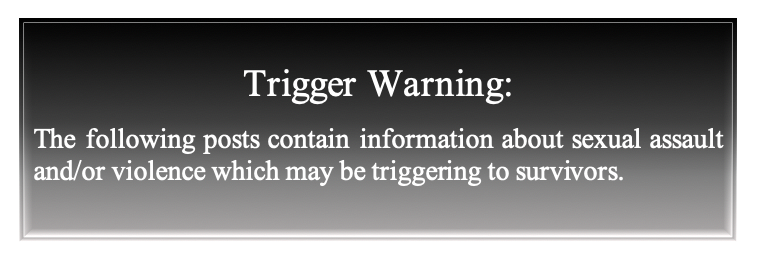 In 1970, at the onset of the Second Wave feminist movement, Susan Griffin argued that rape was a “form of mass terrorism.” By equating rape with terror, Griffin deliberately contested the national perspective of sexual assault. Common law in the United States during the 1960’s deemed rape as a mere “carnal knowledge of a woman not one’s wife by force or against her will.” Second Wave poets challenged that lie. Through poetry, these women were able to successfully reach their readers’ hearts and minds; thus, they ignited new discussion and helped contribute to the wave that eventually changed the legal landscape for prosecuting rape in the United States. Sylvia Plath breaks the silence by exposing the horrifying truth about marital rape in “The Jailor.” Adrienne Rich addressed the power issue in her chilling poem “Rape.” June Jordan confronted the ways in which rape uniquely crippled women with intersectional identities in her poem “Case in Point.” Although these revolutionary poets succeeded in exposing the truth about rape and succeeded in sparking the fires of change, years after the Second Wave subsided, rape continues to ravish the nation. Today one in five women experience rape at least once in their lives and one in three women experience sexual violence, according to the National Sexual Violence Resource Center. In 2013, Patricia Lockwood took up the banner. By publishing the poem “Rape Joke,” Lockwood took the first step towards the poets’ war against rape. Lockwood was not alone. Young women and young men began using social media as a vessel to carry their poetic outcry against the epidemic through Pain Memes.
In 1970, at the onset of the Second Wave feminist movement, Susan Griffin argued that rape was a “form of mass terrorism.” By equating rape with terror, Griffin deliberately contested the national perspective of sexual assault. Common law in the United States during the 1960’s deemed rape as a mere “carnal knowledge of a woman not one’s wife by force or against her will.” Second Wave poets challenged that lie. Through poetry, these women were able to successfully reach their readers’ hearts and minds; thus, they ignited new discussion and helped contribute to the wave that eventually changed the legal landscape for prosecuting rape in the United States. Sylvia Plath breaks the silence by exposing the horrifying truth about marital rape in “The Jailor.” Adrienne Rich addressed the power issue in her chilling poem “Rape.” June Jordan confronted the ways in which rape uniquely crippled women with intersectional identities in her poem “Case in Point.” Although these revolutionary poets succeeded in exposing the truth about rape and succeeded in sparking the fires of change, years after the Second Wave subsided, rape continues to ravish the nation. Today one in five women experience rape at least once in their lives and one in three women experience sexual violence, according to the National Sexual Violence Resource Center. In 2013, Patricia Lockwood took up the banner. By publishing the poem “Rape Joke,” Lockwood took the first step towards the poets’ war against rape. Lockwood was not alone. Young women and young men began using social media as a vessel to carry their poetic outcry against the epidemic through Pain Memes.
-Brooke Flagler
